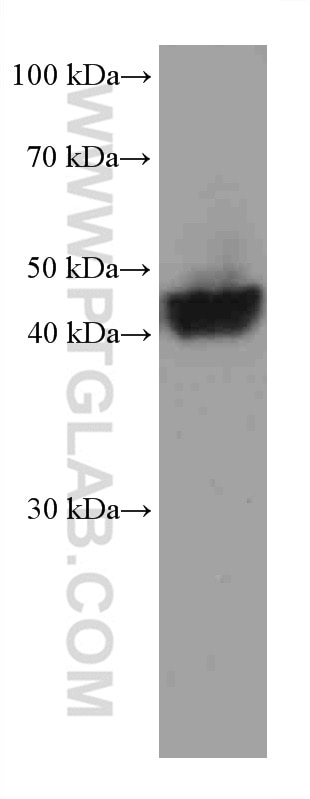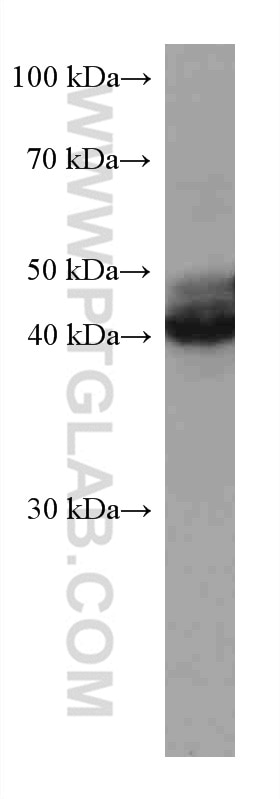Validation Data Gallery
Tested Applications
Recommended dilution
| Application | Dilution |
|---|---|
| It is recommended that this reagent should be titrated in each testing system to obtain optimal results. | |
Product Information
67721-1-PBS targets Nectin-4/PVRL4 in WB, Indirect ELISA applications and shows reactivity with Human samples.
| Tested Reactivity | Human |
| Host / Isotype | Mouse / IgG1 |
| Class | Monoclonal |
| Type | Antibody |
| Immunogen | Nectin-4/PVRL4 fusion protein Ag14414 相同性解析による交差性が予測される生物種 |
| Full Name | poliovirus receptor-related 4 |
| Calculated molecular weight | 510 aa, 55 kDa |
| Observed molecular weight | 43 kDa |
| GenBank accession number | BC010423 |
| Gene Symbol | Nectin-4 |
| Gene ID (NCBI) | 81607 |
| RRID | AB_2882908 |
| Conjugate | Unconjugated |
| Form | Liquid |
| Purification Method | Protein G purification |
| UNIPROT ID | Q96NY8 |
| Storage Buffer | PBS only , pH 7.3 |
| Storage Conditions | Store at -80°C. |
Background Information
Nectin-4, also known as PVRL4, is a type-I transmembrane glycoprotein that belongs to the nectin subfamily of immunoglobulin-like adhesion molecules that participate in Ca(2+)-independent cell-cell adhesion (PMID: 18703497). The extracellular domain of Nectin-4, which contains three immunoglobulin-like domains (V and two C2-type domains, VCC), can be proteolytically cleaved to release a soluble form. Nectin-4 interacts with afadin via its carboxyl-terminal cytoplasmic sequence and trans-interacts with nectin-1/PRR1 through V domain interaction (PMID: 11544254). It acts as a receptor for measles virus (PMID: 22048310). Nectin-4 is overexpressed in multiple human malignancies and the aberrant expression is correlated with cancer progression and poor prognostic (PMID: 35131876). Nectin-4 can be detected as a soluble form of 43 kDa and a transmembrane form of 66 kDa (PMID: 15784625).

